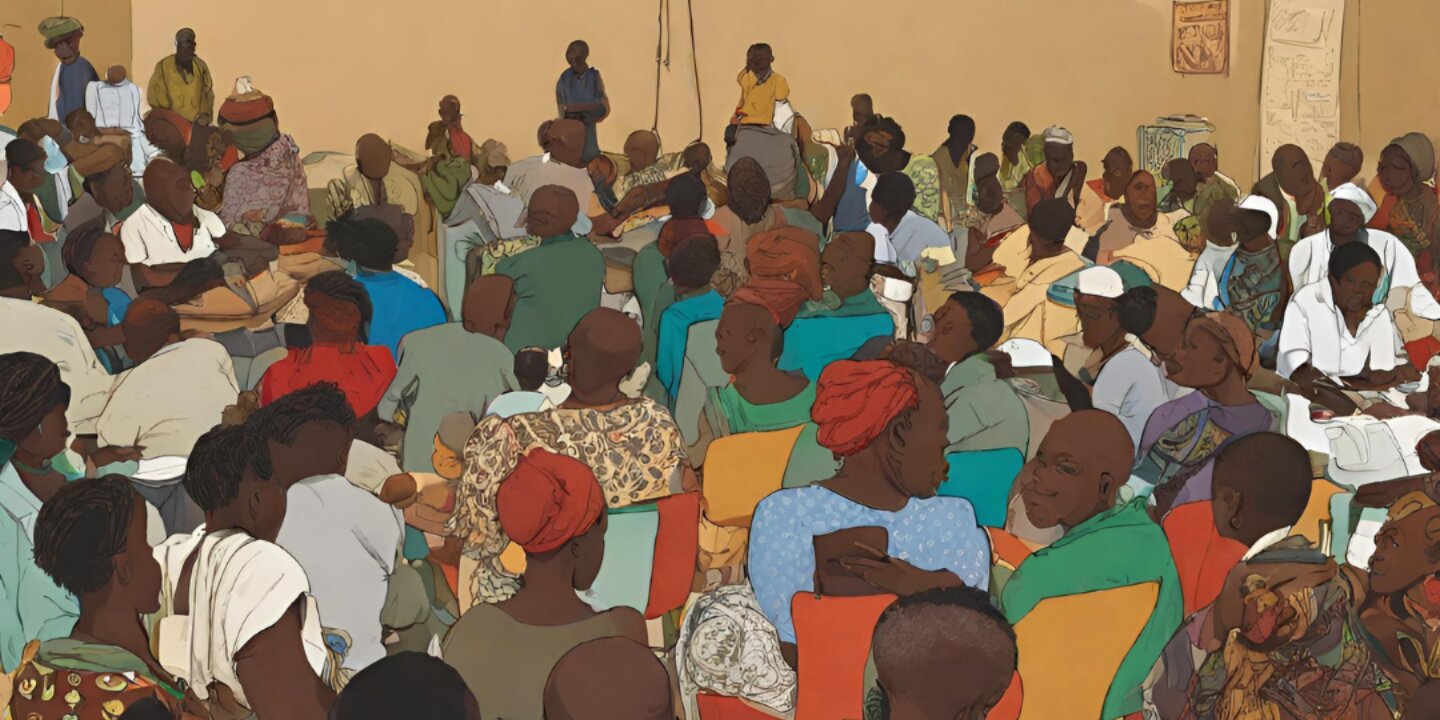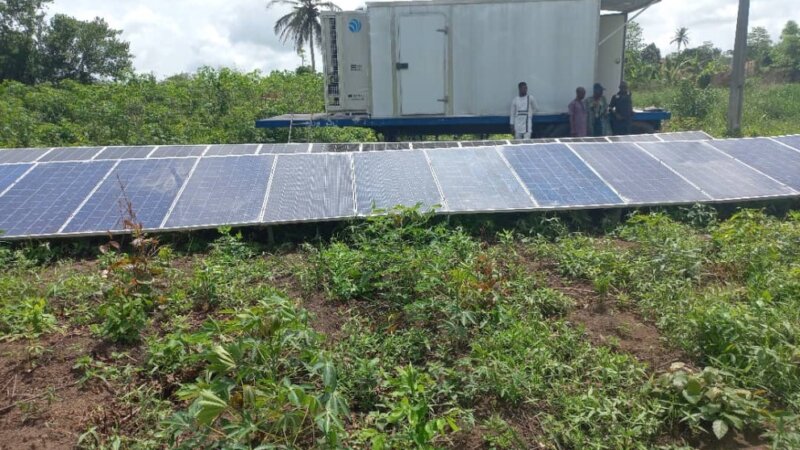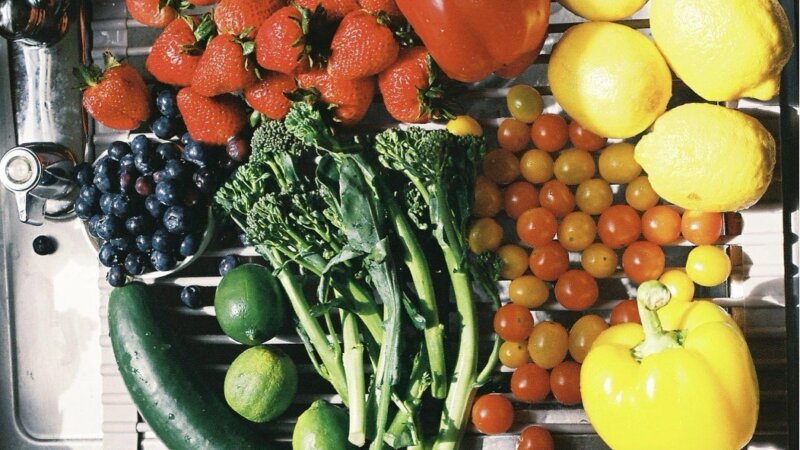Transformation Talks Session 1: The opportunity in South Sudan’s food systems governance

On November 9, the first session in a series of Transformation Talks about the Food Systems Governance Opportunity in South Sudan took place. The first (of three) sessions focused on exploring the opportunity in food systems governance, understanding what (food systems) 'transformation' meant for South Sudan, and whether ongoing local food systems governance interventions can be supported to have transformative impacts to improve South Sudanese food security.
The session began with an introduction on South Sudan's food systems governance opportunity led by Rojan Bolling. Professor Cees Leeuwis (WUR) then explained the theory behind systems change with concrete examples to better understand how governance interventions lead to positive change. The session concluded with a panel and group discussion on the potential for transformative actions and reflections on sustainable change in South Sudan.
Downloads
Panelists
Dr. Tony Ngalamu, Associate Professor at the College of Natural Resources, University of Juba --- Dr. Caroline Delgado, Director of the Food, Peace and Security Programme at SIPRI --- Edward Thomas, Research Fellow with the Rift Valley Institute --- Augustino Atillio, Director General of the South Sudanese Ministry of Livestock & Fisheries
Summary of key findings
On food systems governance..
Food systems are complex networks of actors, activities, organizations, technology, drivers, regulations, policies, chains, behaviour and many other aspects that relate to the production, distribution and consumption of food. Systems thinking is used to make this complexity more concrete.
Governance of food systems is about: 1) trying to manage the interaction between food production, processing, trade and consumption, while 2) dealing with relations these areas have to environmental (eg. natural resources, climate change), economic (eg. markets ) and social (eg. population growth) drivers. To, 3) achieve beneficial outcomes: food and nutrition security, within natural boundaries, realising economic and social goals.
Governance of food systems is not decided by one party, but by many. No one actor is in control. But in order to purposefully transform food systems, you have to govern (the direction of) food systems.
On ‘regimes’ and ‘niches’ of food systems transformation in South Sudan..
The way that (food) systems function can lead to desirable (food security, jobs, etc) or undesirable (pollution, climate change, conflict, etc) outcomes. A key question is: how do systems develop such ‘emergent properties’ that are desirable?
To transform food systems in a desirable direction, the rules of the food systems game must be changed fairly and fundamentally - which is no easy task.
The current way a food system is functioning is called ‘regime’ in systems theory. Changes to this system emerge from interaction between initiatives for change that start small and need to mature (theory: niches), before they can compete with and replace the existing dominant system (regime). The wider context, including global trends (theory: landscape), can serve as pressure and opportunities for niches to overtake the regime - this is called food systems transformation.
- There are many ways to create and support such niches outlined in the presentation by Prof. Cees Leeuwis. Some practical ways include:
Creating niches (innovations/experiments) not just technical but also regulations. Allow for spaces to try out new or existing initiatives with a broad diversity in the social and organisational sphere.
Temporarily protecting niche initiatives. These niche initiatives need to be nurtured, allowed to fail to a certain extent to be able to learn, to be able to configure and compete with existing regimes.
Analysis of landscape trends and visioning. Work towards vision building and visioning activities. Putting pressure on the system through advocacy, social urgencies, pressure groups by looking at the changes/initiatives that have leverage points.
In South Sudan, the siloed humanitarian, development and peacebuilding funding streams and interventions in the aid landscape are a dominant ‘regime’ that is part of the food system. A wider transition that is currently happening in South Sudan’s food system is a transformation from a subsistence based economy towards a market-based economy.
In any system transformation, powerful public and private actors are likely part of a counter-coalition for change, resisting transformation of the status quo.
On the opportunity of food systems governance in South Sudan..
Discussion focused on the opportunity for transformation in South Sudan’s food system through governance initiatives. Are actors involved in governing South Sudan’s food system, including the international aid sector, donors and the UN, ‘locked in’ to operating in a certain way? Does the dynamic of the national and state level food systems pathway development provide opportunities to transform South Sudan’s food system into delivering more desirable outcomes for the population?
From a positive perspective there are enormous opportunities to build on ongoing dynamics in South Sudan
There is a coalition of the willing of key actors in South Sudan developing a shared narrative around food systems transformation and food systems resilience. This shared narrative can be used to support localization of the aid system, working through local institutions.
There is a lot of space and opportunity to operationalize the 4 national priorities set by the government in the national food systems transformation pathway. In the state level dialogues of Jonglei, Western Bahr el Ghazal and Eastern Equatoria concrete energy is seen among key stakeholders that want to invest, to understand how each can play their part in realizing this co-created transformative pathway.
South Sudan’s national convenor of the national food systems pathways, John Kanisio, is working hard to identify champions to build coalitions of the willing across the food system to create awareness, to begin transformation processes, and to mainstream the food systems pathway into national policies and programmes. A strategic national food reserve is being built up, national food systems governance institutions are being created.
Concrete actions are being taken to create ‘niches’, for example in support of local seed systems, of community seed banks. Or when peacebuilding and resilience work is aligned or integrated in innovative ways with the WFP response, using the incentive of aid to bring people together and bridge divides or address competition over natural resources.
In the past twenty years the area of land under production more than doubled showing that an enormous amount of labour is going into food production, South Sudanese people are working incredibly hard to increase food production.
Though during the conflict (2013-2016) many people moved from the Green Belt bordering Uganda and Kenya, taking with them their seeds, they are now moving back
The latest IPC report shows that the number of people who rely on humanitarian aid is decreasing as people are more engaged in producing food. Food aid mostly goes to those in refugee camps, but most people rely on their own production and the market.
From a critical perspective there are many structural, systemic forces at work that limit the potential for current ‘niches’ of innovation to really have transformative impacts on food systems
Aid is being cut, while needs are rising. This also means that resources for creating and supporting innovative ‘niches’ are in decline. Moreover, there still is a lack of common understanding on what the humanitarian-development-peace nexus means in practice. In particular the peacebuilding connection around small scale activities to promote social cohesion is not sufficiently understood.
There are a number of limitations in the approach of donors, affecting funding decisions and potential for transformative approaches: 1) donors are based in Juba, rarely visiting other parts of the country; 2) donors have limited capacity for rigorous context analysis; 3) donors prefer humanitarian financing that goes directly to agencies, over financing that goes to government - limiting the ability to hold the government accountable; 4) donors are reluctant to invest in peacebuilding activities; 5) donors perceive a capacity gap at local level, which due to risk aversion (for accountability to taxpayers) limits localization approach.
At international level, conflict as the main driver of increasing food insecurity is not sufficiently recognized. The issue did not receive sufficient attention in the Food Systems Summit, nor does it feature prominently in African regional policies.
- States where market dependence is high are also the places where undernourishment is high. This is particularly so for the states affected by violence and conflict. The transition from own production towards a market economy may negatively relate with conflict and violence, as well as capacities for climate adaptation.
The competition expected in markets works differently in areas affected by violence, where militias or other powerful actors have the power to accumulate wealth (eg. land and other productive assets) from others. A loss of own production can be associated with a loss of resilience. Landless agricultural wage labour is associated with increased hunger.
Market systems decrease diversity of seeds as markets select for profits. However in traditional agricultural systems seeds were a form of insurance. There is knowledge about seeds that can survive drought, that can survive flooding. Particularly (now, older) women hold much of this knowledge which is disappearing.
So what does transformative change for South Sudan look like in practice?
To get more insight into this question, please join our next session which will take a deep dive into practical cases of ongoing attempts to transform South Sudanese food systems. For more information see our community page on Food Security and Stability
Authors

Rojan Bolling
Knowledge broker

Ruth van de Velde
Partnership Builder



